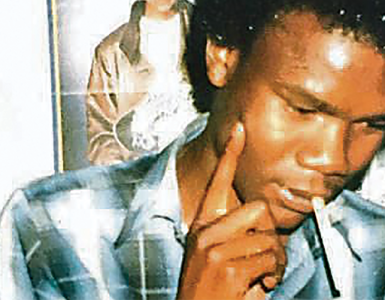OFFENSIVE:The judges dismiss as insult that the arms deal simply arrived at a pre-determined outcome
By Monk Nkomo
THE two retired senior judges accused of misconduct over their handling of the multibillion arms deal have hit back at their detractors, saying the complaints and accusations against them, were baseless and fell outside of the jurisdiction of the Judicial Conduct Committee.
In papers filed before the JCC, former Judge of the Supreme Court Willie Seriti and retired Judge President of the Free State Hendrick Musi contend that neither the Judicial Conduct Committee nor the Chairman of the Judicial Conduct Committee (JCC) had the legal authority to arraign them to misconduct proceedings. This is according to the papers submitted by former Judge of the Supreme Court, Willie Seriti and retired Judge President of the Free State, Hendrick Musi. They filed representations to the JCC this week in which they are challenging the complaints lodged by business companies, Shadow World Investigations and Open Secrets.

The central theme of the complaint is that the two former judges allegedly failed to investigate allegations of corruption while chairing the commission of inquiry into the arms procurement deal which was established on October 24, 2011 by Jacob Zuma who was President of the Republic of South Africa. Both judges submitted that after a long drawn out inquiry which was conducted in public, the Commission found no evidence of corruption, malfeasance or irregularity in the awarding of the contracts. These findings were however challenged by Corruption Watch and others including the current complainants, Hennie Van Vuuren, Paul Holden and Andrew Feinstein. On June 21, 2019 the full bench of the Gauteng High Court in Pretoria comprising Judge President Dustin Mlambo, JP Davis and JP Leeuw, set aside the recommendations and factual findings of the Commission.
Van Vuuren, Holden and Feinstein then filed a complaint with the Office of the Chief Justice that the Commission failed to comply with the principles of legality and rationality. Both Seriti and Musi this week submitted that the findings of the High Court could not form the basis of judicial misconduct.

’’ We also differ fundamentally with the judgement.’’ The High Court found, amongst others, that the Commission refused to admit critical reports, accepted facts as common cause when a reasonable Commission would have probed evidence in order to test the validity of the evidence from what were referred to as non-critical witnesses. This, the two judges, submitted, could not form the basis of judicial misconduct and said the complaint had no merit and should be dismissed.
‘’ There is absolutely no basis to impugn our integrity and the dignity by a postulation that we may have been having a desire to reach a predetermined outcome. This is plainly insulting. No evidence of whatever nature or any factual predicate is offered to suggest such an inference’’. They emphasised that the High Court did not find that there was any corruption which the Commission found and ignored. The court did not consider the entirety of the Commission’s report or the evidence which the Commission gathered and looked in its entirety.
‘’ The judgement of the High Court is therefore not binding in regard to the entirety of the evidence, both documentary and oral, which the Commission had at its disposal. The complainants do not themselves say that there is any evidence of corruption which any further investigation by the Tribunal would unearth. ‘’The allegations made by the complainants are in large measure unfounded and in certain instances downright incorrect’’. According to both former judges, it was strange that the complainants accused them of not conducting a meaningful investigation , ‘’ particularly given the fact that they rebuffed the Commission’s efforts to have them testify before the Commission.’’
Following their complaint, the Chairperson of the Judicial Services Commission decided that he was satisfied that the complaint,, if established, was likely to lead to a finding that both judges suffered from an incapacity, were grossly incompetent or were guilty of misconduct. But both former judges challenged this and submitted that they were discharged from their active duties after reaching 70 years of age and as a result they could not be subjected to misconduct proceedings by the JCC.
‘’ Neither the Judicial Service Commission nor the Chairman of the Judicial Services Committee or the Tribunal have legal authority to submit a retired judge to misconduct proceedings under Chapter 2 Part 111 of the JSC Act.’’
They also submitted that they could not be subjected to an inquiry in terms of section 14 of the JSC Act for work performed in the course of conducting the Commission of inquiry.
‘’We can therefore not be sanctioned in terms of the JSC Act because we are no longer in active service’’.































